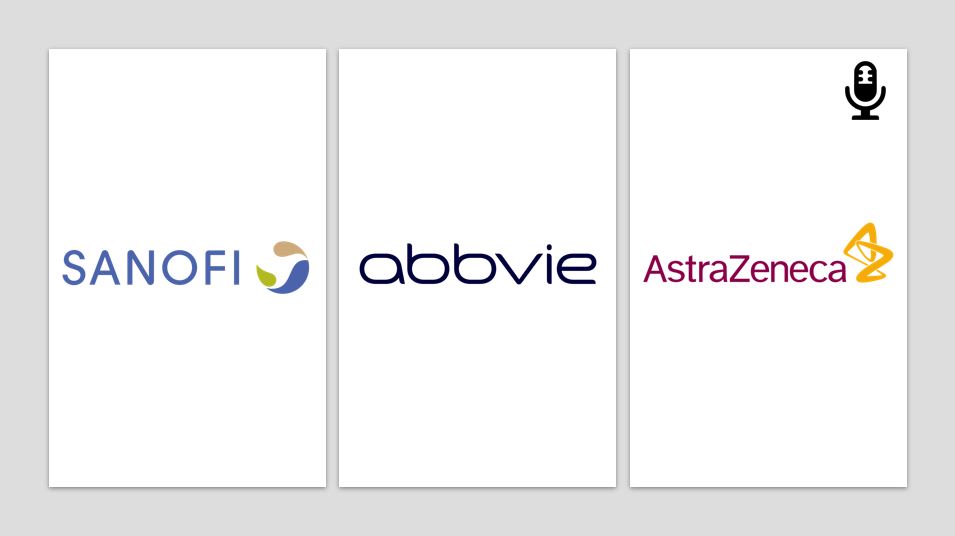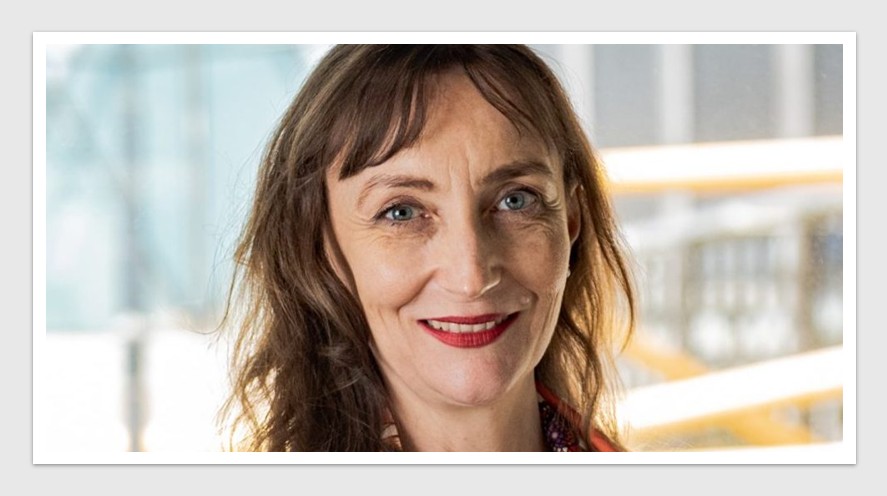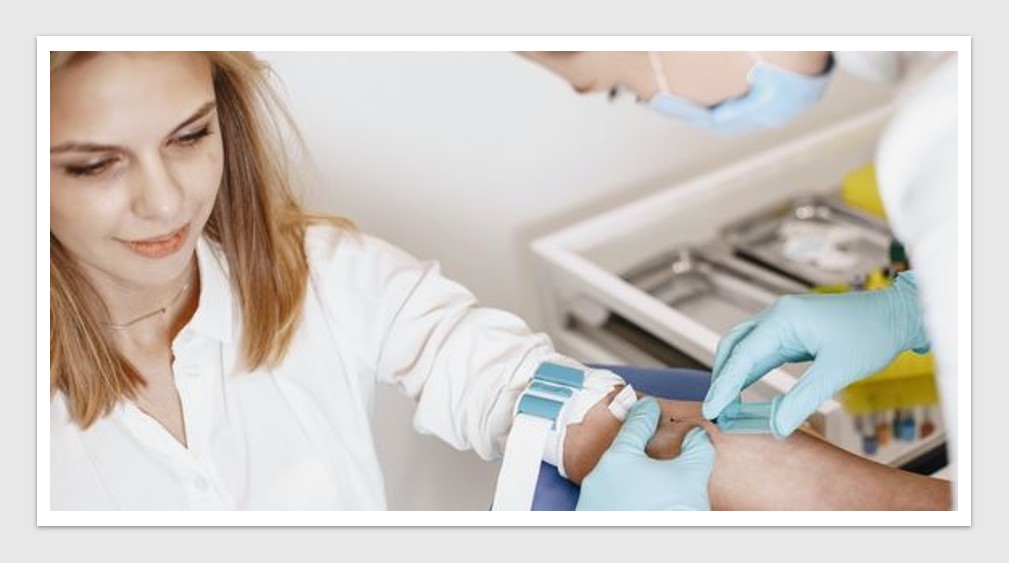Communication
Shifts in corporate communications landscape and key trends for 2022 – Deep dive with Sanofi, AbbVie and AstraZeneca leaders

In today’s post-COVID recovery world, the role of corporate communications has evolved to become more visible; a trusted business leader and advisor impacting employee engagement, innovation, brand reputation and stakeholder relations.
In an interview with Health Industry Hub, Sanofi, AbbVie and AstraZeneca corporate communications leaders take us on a deep dive of how internal and external communications have evolved in the last 18-20 months, and the dynamics and key trends transforming the corporate comms strategies and teams in 2022.
How has the role of corporate communications evolved since the start of the COVID-19 pandemic?
Rebekah Cassidy, Head of Communications, Sanofi Australia & New Zealand, said “It has been a very busy 18 months where we’ve seen not so much the role of the corporate communications function changing but potentially the areas of focus. We have seen immense shifts in the function of internal communications from being a function of largely face to face engagement with our people to asking really rich questions about how we connect in an organisation that is shifting from remote to hybrid to hybrid to remote working, on and off, over an 18 month period.
“As organisations have started to embrace the opportunity that comes with hybrid working and face those realisations that perhaps things won’t ever go back to exactly the way they were before, we’ve had to ask ourselves some big questions about how to keep those communities within our business connected, had to think about new ways of working and new channels of connecting our people and leaders, and embracing internal social enterprise like Yammer. It has been a big journey of discovery and one that we’ve been working really closely on with our partners across the business, the executives of the business and our human resources team.
“From an external perspective, it has been interesting to watch the pharmaceutical industry’s reputation at a global level shift and change over the past 18 months. As we look at the way that people’s perceptions of our industry have changed, what does that mean to the way that we bring the brand message to people in Australia and New Zealand? That’s meant challenging ourselves a little bit differently about how we share the story of our business through Facebook, Twitter and YouTube in helping people to understand the role medicines and vaccines play in their communities and the deep role that our industry plays in their everyday lives.”
Kate Richards, Director, Communications and Patient Relations, AbbVie commented “The corporate communications team in collaboration with Chris Stemple, our General Manager, took the convening role to bring everyone together cross functionally to help in the response to the crisis and the issues associated with it.
“We’ve had two streams of communication; firstly, the really important information on safety and health that we had to get across to our employees in an accurate and timely manner, and secondly, the emphasis on employee engagement where we spent a lot of time and energy thinking about how we best communicate with our employees during this period to ensure that engagement levels are high, and they felt supported from a mental health and wellbeing perspective.
“Along with managing aspects of internal and external communications, we had to remember that patients are relying upon us to deliver medicines they need, and we must ensure that the continuity is there. One of the unfortunate outcomes of the pandemic is seeing the decrease in diagnosis of chronic diseases and the longer-term impact on patient prognosis. We identified that we must keep on with the disease awareness messaging and reminding people about prioritising their health.
“I am so fortunate to lead a team of highly professional communications experts and we were able to respond rapidly with their expertise underpinning the strategy and delivering value to the organisation.”
Melissa Millard, Head of Communications ANZ, AstraZeneca said “It was two weeks after I joined AstraZeneca that our global CEO signed the agreement with Oxford University. Our focus started to shift to thinking that not only were we helping our employees through the pandemic, but we might have a role in helping the world address COVID-19.
“Within a short time, we were faced with becoming a household name and trying to figure out what that meant for our organisation. For a pharmaceutical company it has never been an ambition because we don’t have that direct relationship with consumers.
“One of the challenges has been that we’re trying to operate in two gears. One gear is constant, fast, responsive. The other is, while you’re taking that very reactive and responsive approach, there is still a very real need to plan, to look to the future and consider what it is that you want to stand for, who your key stakeholders are and how you want to engage with them. The challenge has been shifting my mindset from being in that constant reactive environment to what we do with this information and how we build on this in the short and long term.”
What have been your broader observations of this evolution outside of the pharma industry?
Kate Richards said “For organisation with corporate communications teams there was a significant increase in workload and the requirement to rapidly respond while working on multiple aspects of communications planning. However, for organisations that didn’t already have a communications team in place, the pandemic created issues and demand for PR agencies grew and suddenly they recognised the need for high quality communications counsel.”
Rebekah Cassidy added “Many of the conversations that we’re having are similar across different sectors including how to connect communities in a hybrid workforce and what it means over the longer term, how to maintain the uplift in people reaching out to connect with their colleagues, peers and leaders that was seen in the early days of the pandemic, how to build a richness into internal conversations when employees are not going to be face to face as much as they were before, and how to make the best of those opportunities when employees come together face to face.
“The other big questions are around the role of corporate entities in the community. Globally, the world is facing big challenges, from the pandemic to climate change and DE&I. Corporate communications professionals are asking how we enter and become part of those conversations and always act with absolute integrity and authenticity. I think it’s a really good thing that our stakeholders and investors are asking that of us too.”
Melissa Millard commented “I remember very early on in the pandemic it seemed like every email that came out from one of the big supermarkets was about what they were doing to keep you safe during COVID. There was so much discussion about how they were such great corporate citizens. Within a short period of time, it felt like every single company that you might have anything to do with was sending similar messages so it started to feel somewhat trite.
“Companies have generally done a good job of addressing that and adapting to the way that things have changed in recent months, whether that’s providing a way for people to stay in touch while working from home through adopting new technology to facilitate collaboration and relationship building or whether it’s creating flexible work environments. And now looking at what the requirements are for vaccination to allow people to come back to the workforce, whatever that looks like. Companies have played a really important role not only in communication but in providing leadership through this as well.”
Which technologies have helped you and your team respond to the crisis?
Melissa Millard noted “Internally, we’ve utilised applications like Teams and the various functions it enables. This has helped me expand my communications team in different cities across Australia and enabled me to get the best people for the job, not just the best people who live in Sydney.
“Externally, when AstraZeneca’s COVID-19 vaccine was approved by the TGA back in February, we held a media briefing with Liz Chatwin, our country president. As we couldn’t do that in person, we worked with one of our providers and created an editing suite in one of our meeting rooms in the office allowing us to have a broadcast quality set up with Liz being able to engage with journalists nationally.”
Rebekah Cassidy said “We have access to a range of solutions that help us stay connected with our people. We have a number of Yammer communities, both at a global level and in Australia and New Zealand, that allow people to stay connected. The challenge is to take that from another news flow to a conversation with your people. We’re doing a lot of storytelling through those communities that allows people to engage with their peers. We’ve done lots of internal webinars for our people to help them connect with employee wellness programs and different news happening across the business.”
Kate Richard added “We have relied heavily on Microsoft Teams and SharePoint because they give us the ability to communicate in different ways – short, sharp and regular communication right through to the ability to record and house videos. Instant messaging has been a popular substitute for what would have been the chat as you sat physically at a desk side by side with a colleague. Dedicated SharePoint sites have allowed news bulletins on health and safety measures in addition to more uplifting and light-hearted user-generated content from employees including pictures of pets, sharing recipes and lockdown songs to help keep people connected.
“During the lockdowns, we’ve also grown accustomed to lower production value videos so content recorded on an iPhone or through the camera of our laptops are what our employees, customers and patients are accustomed to see.”
What dynamics and key trends will be transforming the corporate comms strategies and teams in 2022?
Rebekah Cassidy said “For many of us in Australia, it’s the opening up of our community. So, how do we make that clean transition into embracing the best of what we’ve learned over the last 18 months and bringing that into the future ways of working together? We’ve set up a lot of the structures to make sure we’re in good shape to do that. From a communications perspective, we’ve got the right channels, deeply connected with our executive leaders and we’re on the same journey together.
“The major reputational drivers for organisations like Sanofi are related to the big topics of governance, accountability and transparency, and how we treat our employees. The big societal conversations are going to be corporate communicators’ areas of focus. What is the authentic and true voice of an organisation on some of the big topics that are happening in our communities, where sometimes those topics can be divisive? How do we have those conversations about the role that we play in our communities?
“From a team perspective, I see a lot of growth in corporate comms across industries, especially in hiring of senior roles with a strategic focus.”
Kate Richards added “I’m thinking of 2022 as the year of hybrid communication which presents a really unique challenge. What we must weigh in from a communications perspective is how we deliver a high-quality hybrid experience, both internally and externally, for our employees, customers, patients and stakeholders.
“Flexibility is one of the silver linings of the pandemic. So, how do we embed flexibility across our organisations and create a compelling and engaging experience with some people on the screen and others are in the office? Getting the technology, settings and delivery right to ensure that you’re engaging everyone equally is quite a challenge.”
Melissa Millard commented “I’m working very closely with our digital team on what our social media offering looks like, how the governance and processes work and how they feed into the overall strategy, reiterating and supporting the corporate purpose and what AstraZeneca stands for.
“COVID-19 has brought communications to the fore in a way that probably hasn’t been seen for quite some time. We were so used to operating within the Medicines Australia Code of Conduct, and we still are, but we’ve had to recognise the need to give people information that addresses the fake news and makes them feel comfortable in talking to their own communities. We have a fantastic platform to build on as we look at the myriad ways that we are communicating with our stakeholders and making sure that the information is accurate, timely, appropriate and relevant.
“The past 18 months have really shown how important science is and how critical it is to communicate science well. I hope that at AstraZeneca my team and I are contributing our part to that accurate discussion,” she concluded.
News & Trends - MedTech & Diagnostics

Landmark study exposes stark differences in ICD battery life and patient risk
A new independent study examining over 35,000 implantable cardioverter-defibrillators (ICDs) has uncovered significant differences in battery longevity across several medtech […]
MoreNews & Trends - Pharmaceuticals

Industry roundtable to shape Australia’s genomics policy
An invitation-only roundtable of key industry leaders and representatives from both federal and state governments is convening today to shape […]
MoreNews & Trends - MedTech & Diagnostics

Pathology indexation reboot leaves essential services behind
After nearly three decades of stagnation, the federal government has reinstated annual indexation for selected Medicare Benefits Schedule (MBS) pathology […]
MoreDigital & Innovation

Navigating telehealth’s crowded rulebook: New consortium adds its voice to the mix
A newly formed Consortium of telehealth providers and private health insurers has come together to develop national standards for the […]
More